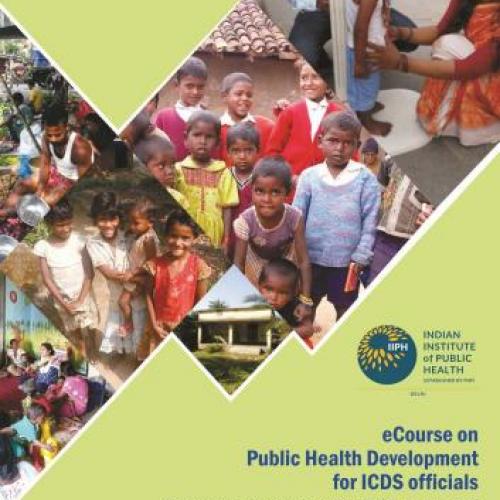Admissions open for December 2021 batch
Last date for submission of online application is 20th November 2021 .
Background
Malnutrition in India has been called ‘The Silent Emergency’. The proportion of undernutrition among children and women in India is one of the highest in the world. In spite of unprecedented economic growth, improvements in childhood nutritional status in India over the last decade has been slow. Suboptimal infant and young child feeding practices in particular continue to be a serious challenge to reducing malnutrition among children. High rates of maternal undernutrition measured by low body mass index and anaemia adversely affect the health and survival of mothers and newborns. Further, chronic malnutrition in early years of life is responsible for widespread stunting and adverse health and social consequences throughout the lifespan. Community based approaches have been the mainstay of interventions to address the problem of maternal and child malnutrition in developing societies. Community based care delivered through health care workers like anganwadi workers, (AWW), auxillary nurse midwives (ANM) and accredited social health activists (ASHA), can have a vital impact on maternal and child health and nutritional status. However, there is an urgent need to facilitate proper training and handholding of frontline workers, their supervisors and their managers to empower them with knowledge, appropriate skills and motivation to serve the community. In pursuance to national policy for children in India, ICDS (Integrated Child Development Services) under the Ministry of Women and Child Development was launched in 1975. With its workforce of anganwadi workers (AWW), ICDS is a comprehensive scheme of Government of India and aims at enhancing survival and development of children. In spite of a well conceptualized program, systematic weaknesses, logistical gaps, resource scarcity, and poor utilization continue to hamper progress and affect the outcome of the program. This eCourse aims to update current knowledge, strengthen the technical capacity on reproductive and child health nutrition and enhance the managerial skills of the service providers and officials working under the ICDS program.
Eligibility Criteria The course is open to:Applicants (Indian Candidates) currently engaged with Ministry of Women and Child Development, State departments of women and child development and specifically working with the Integrated Child Development Services (ICDS). Eligible candidates will be screened by a selection committee based on their application and statement of purpose. The decision of selection committee will be final.
Course ObjectiveBy the end of this course, the participants will be able to
- Develop an understanding of core strategies in implementation of ICDS program in India.
- Develop a sound knowledge base on core principles of adolescent, maternal and child nutrition.
- Acquire technical skills on screening, detection, management and prevention of undernutrition in adolescents, women in the reproductive age group and children.
- Develop counselling skills and sound understanding of social and behaviour change communication in order to bring about change in health and nutrition practices in the community.
- Develop core competencies in planning, management, monitoring and evaluation of nutrition programs.
The course is designed as a six months program. It is an interactive distance learning computer based program, selftaught, complemented with online lectures, exercises and comprehensive list of reference materials. The sessions will be delivered in synchronous and asynchronous mode. There will be a discussion forum to let ideas flow between participants to enable enhanced learning. The official language of this course is English.
Teaching and Training MethodologyThe course will be delivered in the hybrid/blended learning mode, through online platform, i.e. through a mixture of recorded and live e-learning sessions that will be conducted by faculty members with students logging in from their location. The greatest advantage of eLearning is that students can learn at their own pace. The offline components of the course (a written manual) will be complemented by online lectures (online sessions using power-point presentations).
Course Modules Name of the Modules:- Integrated Child Development Services
- Principles of nutrition and nutritional requirements (adolescent, maternal and child nutrition)
- Social and Behaviour Change Communication (SBCC) for nutrition
- Malnutrition in adolescents, women and children
- Prevention and management of malnutrition in adolescents, women and children
- Micronutrient malnutrition
- Management of nutrition programs

Course Coordinator:
Program Officer:
- Duration: 6 Months
- Brochure: Download
- Program Fee: Indian: 18000 INR
- certificate_icds@iiphd.org
- + 91-124-4781400/ +91-124-4722900 ext.4245


